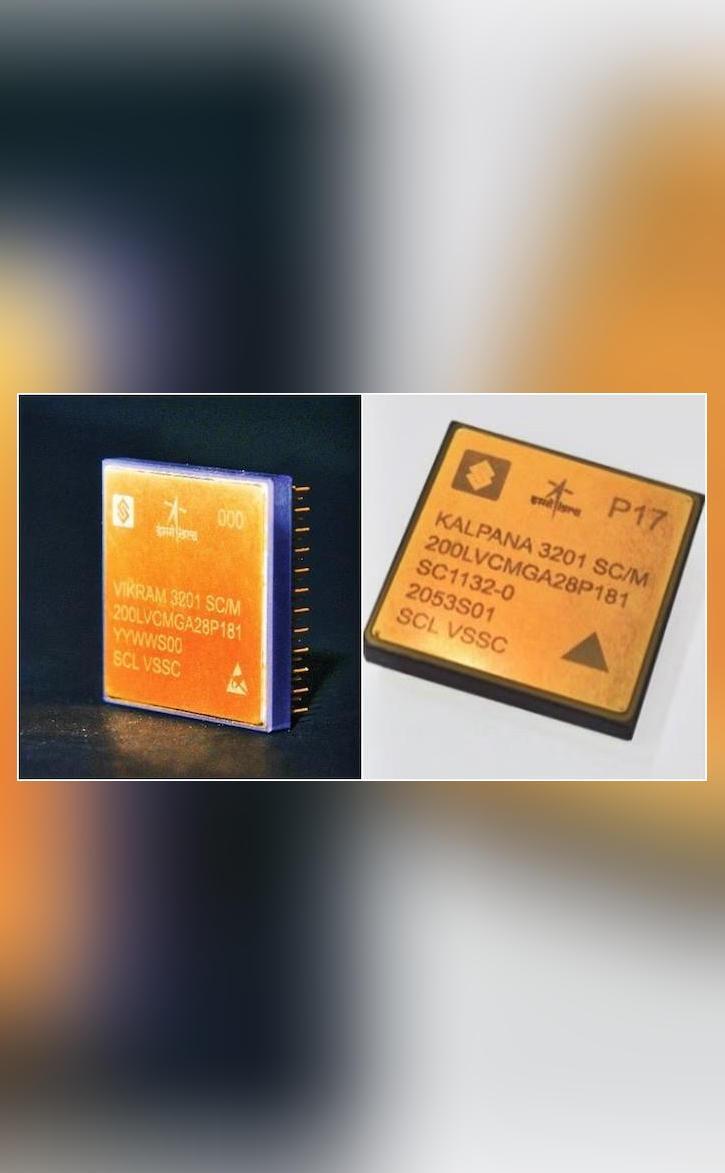
ISRO & SCL Develop 32-bit Microprocessors for Space Applications
The Indian Space Research Organisation (ISRO) and the Semiconductor Laboratory (SCL) in Chandigarh have made a significant breakthrough in the field of space technology with the development of two 32-bit microprocessors, VIKRAM3201 and KALPANA3201. These microprocessors have been designed specifically for space applications, marking a major milestone in India’s journey towards self-reliance in the production of high-quality electronics for space exploration.
The VIKRAM3201 microprocessor is particularly noteworthy, as it is the first fully “Make-in-India” 32-bit microprocessor to be qualified for use in the harsh environmental conditions of launch vehicles. This achievement is a testament to the capabilities of Indian researchers and engineers, who have worked tirelessly to develop cutting-edge technology that meets the stringent requirements of the space industry.
The development of these microprocessors is a significant step forward for ISRO and SCL, as it enables India to reduce its reliance on foreign technology and increase its self-reliance in the production of high-quality electronics for space exploration. The microprocessors are designed to operate in extreme temperatures, radiation, and vibration, making them suitable for use in launch vehicles, satellites, and other space-based systems.
The VIKRAM3201 microprocessor is a 32-bit processor that operates at a speed of up to 80 MHz. It features a RISC (Reduced Instruction Set Computing) architecture, which provides improved performance and power efficiency. The processor also includes a range of advanced features, such as a memory management unit, a floating-point unit, and a interrupt controller.
The KALPANA3201 microprocessor, on the other hand, is designed for use in satellite-based systems. It is a 32-bit processor that operates at a speed of up to 40 MHz and features a Harvard architecture, which allows for improved memory bandwidth and reduced power consumption. The processor includes a range of advanced features, such as a memory management unit, a floating-point unit, and a interrupt controller.
The development of these microprocessors is a significant achievement for ISRO and SCL, as it demonstrates the capabilities of Indian researchers and engineers in the field of space technology. The microprocessors are designed to operate in extreme temperatures, radiation, and vibration, making them suitable for use in launch vehicles, satellites, and other space-based systems.
The VIKRAM3201 microprocessor is the first fully “Make-in-India” 32-bit microprocessor to be qualified for use in the harsh environmental conditions of launch vehicles. This achievement is a testament to the capabilities of Indian researchers and engineers, who have worked tirelessly to develop cutting-edge technology that meets the stringent requirements of the space industry.
The development of these microprocessors is a significant step forward for ISRO and SCL, as it enables India to reduce its reliance on foreign technology and increase its self-reliance in the production of high-quality electronics for space exploration. The microprocessors are designed to operate in extreme temperatures, radiation, and vibration, making them suitable for use in launch vehicles, satellites, and other space-based systems.
The VIKRAM3201 microprocessor is designed to operate in a range of temperatures, from -20°C to 70°C, and can withstand radiation levels of up to 1 MeV. It also features a range of advanced features, such as a memory management unit, a floating-point unit, and a interrupt controller.
The KALPANA3201 microprocessor, on the other hand, is designed for use in satellite-based systems. It is a 32-bit processor that operates at a speed of up to 40 MHz and features a Harvard architecture, which allows for improved memory bandwidth and reduced power consumption. The processor includes a range of advanced features, such as a memory management unit, a floating-point unit, and a interrupt controller.
The development of these microprocessors is a significant achievement for ISRO and SCL, as it demonstrates the capabilities of Indian researchers and engineers in the field of space technology. The microprocessors are designed to operate in extreme temperatures, radiation, and vibration, making them suitable for use in launch vehicles, satellites, and other space-based systems.
The VIKRAM3201 microprocessor is the first fully “Make-in-India” 32-bit microprocessor to be qualified for use in the harsh environmental conditions of launch vehicles. This achievement is a testament to the capabilities of Indian researchers and engineers, who have worked tirelessly to develop cutting-edge technology that meets the stringent requirements of the space industry.
The development of these microprocessors is a significant step forward for ISRO and SCL, as it enables India to reduce its reliance on foreign technology and increase its self-reliance in the production of high-quality electronics for space exploration. The microprocessors are designed to operate in extreme temperatures, radiation, and vibration, making them suitable for use in launch vehicles, satellites, and other space-based systems.
In conclusion, the development of the VIKRAM3201 and KALPANA3201 microprocessors is a significant achievement for ISRO and SCL, as it demonstrates the capabilities of Indian researchers and engineers in the field of space technology. The microprocessors are designed to operate in extreme temperatures, radiation, and vibration, making them suitable for use in launch vehicles, satellites, and other space-based systems. This achievement is a testament to the capabilities of Indian researchers and engineers, who have worked tirelessly to develop cutting-edge technology that meets the stringent requirements of the space industry.






